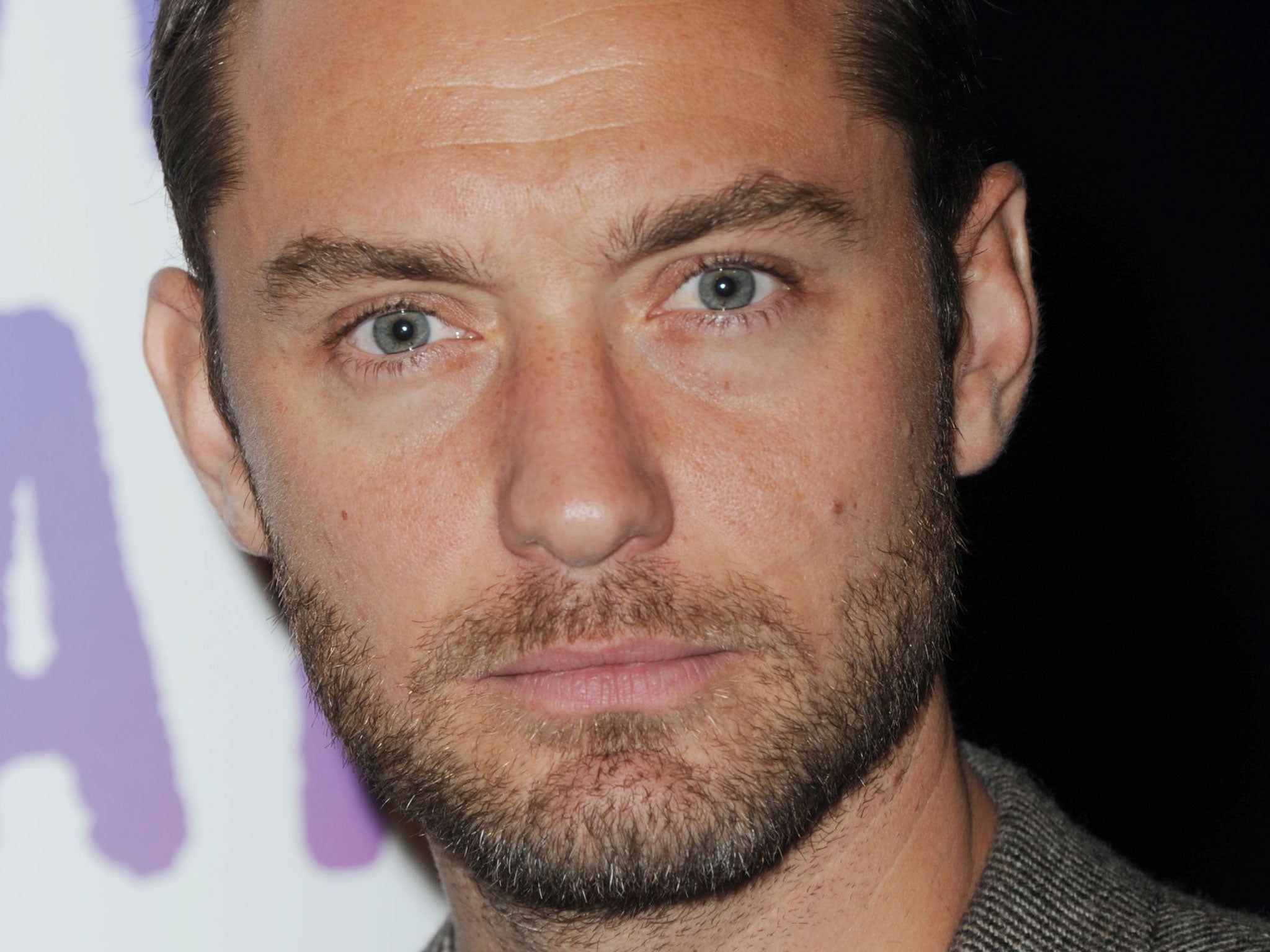Everyone, even Jude Law, should be able to live out their love lives in private
Before Rupert Murdoch and his hacks say that celebrities have invasions into their privacy coming to them, they should look at their own affairs

Your support helps us to tell the story
From reproductive rights to climate change to Big Tech, The Independent is on the ground when the story is developing. Whether it's investigating the financials of Elon Musk's pro-Trump PAC or producing our latest documentary, 'The A Word', which shines a light on the American women fighting for reproductive rights, we know how important it is to parse out the facts from the messaging.
At such a critical moment in US history, we need reporters on the ground. Your donation allows us to keep sending journalists to speak to both sides of the story.
The Independent is trusted by Americans across the entire political spectrum. And unlike many other quality news outlets, we choose not to lock Americans out of our reporting and analysis with paywalls. We believe quality journalism should be available to everyone, paid for by those who can afford it.
Your support makes all the difference.Louise Mensch, the novelist and former Conservative MP, used her Sun on Sunday column yesterday to suggest Hugh Grant and Jude Law only supported privacy laws because they had children by multiple partners. Within minutes, others on social media were quick to point out Mensch’s octogenarian employer, Rupert Murdoch, also has a colourful private life, with six children from three marriages.
He divorced his third wife, Wendi Deng, only last year, with accusations flying around she had been besotted with Tony Blair. These rumours were sourced mainly from News Corp emails and seemed to tell one side of the story. And that’s the reality of privacy and celebrity these days: the media barons who buy ink by the container load and pixels by the terabyte, control the story.
But Mensch represents more than the self-interest of her payroll: she represents the self-interest of Fleet Street. Ever since the Hacked Off victims group used the profile of actors like Hugh Grant and Steve Coogan to highlight press intrusion and demand higher standards at the Leveson Inquiry, there has been a growing chorus among many editors and journalists: certain actors have it coming.
Some have had their wedding rings airbrushed out of pap photos, so tabloids could claim they were having a wild night out on the town. Others have had their partners targeted in complicated online stings to entrap them in some infidelity. We now know dozens had their phone hacked, or had stories about them leaked by police and other public officials, in return for cash. Only a tiny number harried this way have ever come forward, like Grant and Coogan. The rest are terrified of further targeting and intrusion.
Of course, this phenomenon of celebrity obsession is not unique to Fleet Street. French magazines are almost as bad, as are US websites. The difference in the UK is that 1) the competition among national newspapers is so fierce, and 2) there is such a concentration of media ownership. Together, this leads to a concentration of hatchet jobs and character assassinations.
There’s also a question of imbalance: how come many powerful or rich people, like Murdoch or his daughter Elisabeth (recently divorced from PR guru Matthew Freud), get to hide in the shadows when others are exposed to the press’s scorching search-light?
The whole time that the News of the World was winning awards for exposing high-profile affairs, Rebekah Brooks kept her long-running relationship with Andy Coulson hidden. “The irony is not lost on me,” Coulson told the court. The barrister cross examining him called it "pure hypocrisy".
There’s one way out of this irony trap. Dare I say it? Dare I whisper the words?
Celebrities are only human, and they have human rights too.
Article 8 of the European Human Rights Act enshrines the right to privacy and family life above article 10, Freedom of Expression. During the eight month phone hacking trial, lawyers for Brooks and Coulson often invoked these rights. That unsent love letter from Brooks to Coulson, found on a computer confiscated by police on her arrest in 2011, has never been released to the public for exactly this reason, even though the jury were allowed to read it.
The trial judge, Mr Justice Saunders, ruled the publication of details of the affair could harm Coulson’s children – drawing on a precedent ironically set by an actor who won an injunction against News of the World for the same reason.
The court reporters in the Old Bailey were crestfallen, having heard rumours of lurid language and knowing they would be able to pitch a high profile story to their editors. But to my mind the judge made the right decision about the Brooks love letter.
You can’t fight press intrusion by retaliation, no matter how delicious the ironies are. You can only apply a universal principle. Even journalists and famous editors are human. Like actors, they have human rights too.
Join our commenting forum
Join thought-provoking conversations, follow other Independent readers and see their replies
Comments